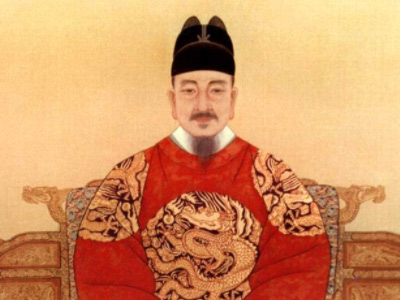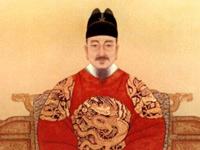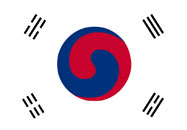Sejong the Great (1397-1450)

Literature
Sejong depended on the agricultural produce of Joseon's farmers, so he allowed them to pay more or less tax according to fluctuations of economic prosperity or hard times. Because of this, farmers could worry less about tax quotas and work instead at surviving and selling their crops. Once the palace had a significant surplus of food, King Sejong then distributed food to poor peasants or farmers who needed it. In 1429 Nongsa-jikseol (hangul: 농사직설, hanja: 農事直說, "Explanations of Agriculture") was compiled under the supervision of King Sejong. It was the first book about Korean farming, dealing with agricultural subjects such as planting, harvesting, and soil treatment.
Although most government officials and aristocrats opposed usage of hangul, lower classes embraced it, became literate, and were able to communicate with one another in writing.
Sejong's personal writings are also highly regarded. He composed the famous Yongbi Eocheon Ga ("Songs of Flying Dragons", 1445), Seokbo Sangjeol ("Episodes from the Life of Buddha", July 1447), Worin Cheon-gang Jigok ("Songs of the Moon Shining on a Thousand Rivers", July 1447), and the reference Dongguk Jeong-un ("Dictionary of Proper Sino-Korean Pronunciation", September 1447).
In 1420 Sejong established the Hall of Worthies (집현전; 集賢殿; Jiphyeonjeon) at the Gyeongbokgung Palace. It consisted of scholars selected by the king. The Hall participated in various scholarly endeavors, of which the best known may be the compilation of the Hunmin Jeongeum.
HISTORY

RESOURCES
This article uses material from the Wikipedia article "Sejong the Great (1397-1450)", which is released under the Creative Commons Attribution-Share-Alike License 3.0.
© Stories Preschool. All Rights Reserved.








